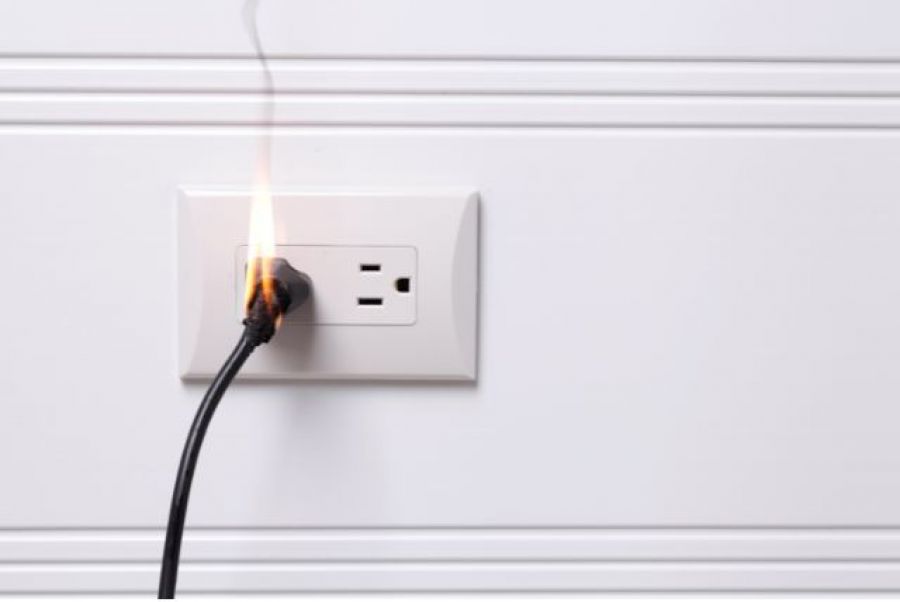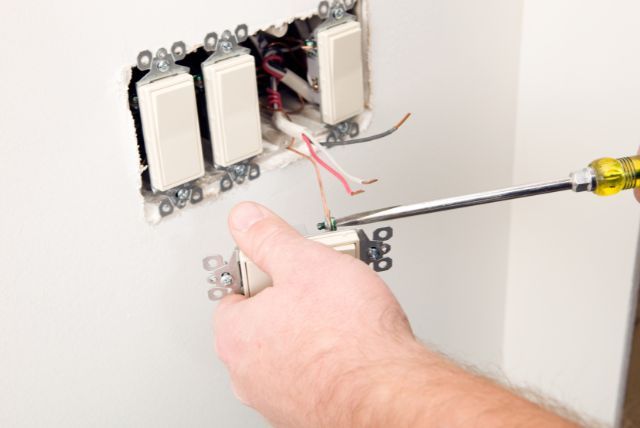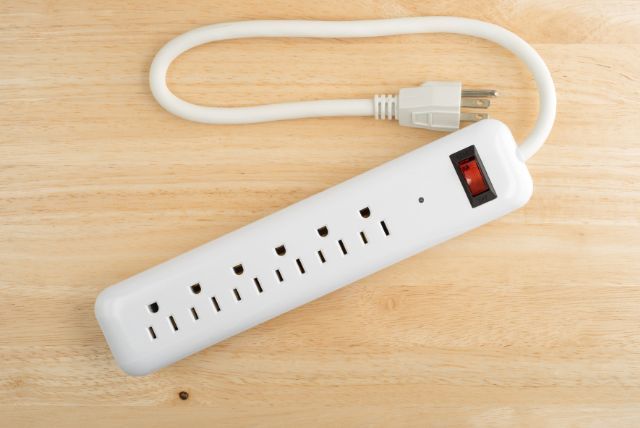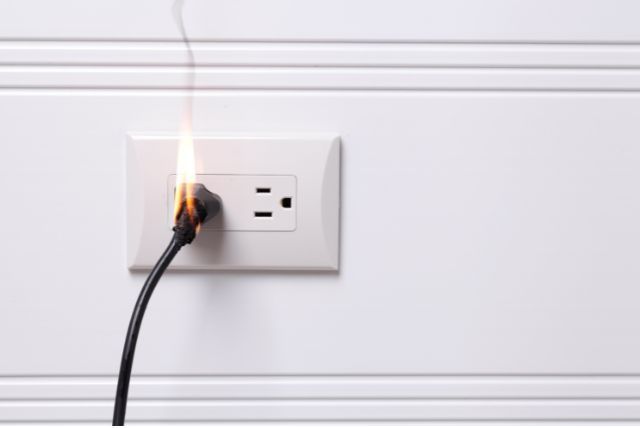How Electrical Fires Start: Understanding the Hidden Danger

Table of Contents
ToggleTLDR: Electrical fires, caused by issues like overloading circuits, faulty wiring, and misuse of appliances, pose a serious risk. Key prevention strategies include regular electrical inspections, safe usage of devices, maintaining clear space around electrical areas, and proper fire safety equipment. It’s crucial to educate on electrical safety and know how to respond if a fire occurs, emphasizing the importance of professional inspections to prevent such hazards effectively.
Electrical fires are a silent menace that can wreak havoc on homes, businesses, and lives. With our increasing reliance on electrical devices and systems, it is crucial to gain a comprehensive understanding of how electrical fires start and what preventive measures can be taken. In this extensive guide, we will delve deep into the multifaceted world of electrical fires, exploring their causes, risks, and most importantly, how to safeguard against them.
The Anatomy of an Electrical Fire
To comprehend how electrical fires start, it is essential to understand the fundamental components and processes involved. Electrical fires typically occur due to the following key factors:
Overloading Circuits
One of the primary culprits behind electrical fires is circuit overload. This occurs when multiple electrical devices draw more current than a circuit can handle safely. When overloaded, wires can heat up, leading to sparks and potentially igniting a fire. Homes with outdated wiring systems are particularly vulnerable to this hazard.
To mitigate the risk, distribute electrical devices across multiple circuits, use circuit breakers or fuses, and avoid using extension cords for prolonged periods.
Faulty Wiring
Faulty wiring is a prevalent cause of electrical fires. Over time, wires can degrade due to various factors, including wear and tear, exposure to moisture, or rodent infestations. When wires become compromised, they are susceptible to short-circuiting, sparking, and causing fires. Poorly installed or outdated wiring systems also contribute to this hazard.
Regular inspections of your electrical wiring and professional maintenance checks are essential to identify and rectify potential issues. If your home has outdated wiring, consider investing in rewiring to ensure safety.
Malfunctioning Appliances and Electronics
Defective appliances and electronics are another leading fire risk. These devices may contain faulty wiring, damaged power cords, or overheating components. During operation, these problems can escalate, leading to fires.
To reduce the risk, always purchase appliances and electronics from reputable brands, inspect power cords and plugs for damage, and refrain from using items that exhibit unusual behavior, such as overheating, sparking, or emitting strange odors. Regular maintenance and prompt repairs can prevent appliance-related fires.
Extension Cords and Power Strips
Extension cords and power strips offer additional outlets but can also be dangerous if misused. Plugging too many devices into a single power strip or overloading an extension cord can cause overheating and potential fires. Using damaged or frayed cords also poses a significant risk.
To lower the chances of an electrical fire, use power strips and extension cords sparingly, avoid daisy-chaining multiple extension cords, and replace damaged cords immediately. Invest in high-quality surge protectors with overload protection features for enhanced safety.
Flammable Materials and Clutter
Clutter and the presence of flammable materials near electrical outlets and appliances can exacerbate the risk of electrical fires. Items like paper, cloth, curtains, or other combustible materials can easily ignite when exposed to heat from faulty wiring or overheating appliances.
Maintain clear areas around electrical outlets, fuse boxes, and appliances to reduce the likelihood of fire spreading. Regularly inspect and declutter spaces that house electrical equipment, ensuring that flammable materials are stored away from electrical sources.
Poorly Maintained Electrical Panels
Electrical panels, also known as breaker boxes or fuse boxes, are central components of a home’s electrical system. These panels distribute electrical power throughout the house and protect against electrical overloads. However, if not properly maintained or if outdated, they can become fire hazards themselves.
Older electrical panels may fail to trip correctly when overloaded, leading to overheating of the circuit breakers or fuses. To ensure safety, have your electrical panel inspected regularly by a licensed electrician to ensure it is in good working order and up to code.
Lightning Strikes and Power Surges
While less common, lightning strikes and power surges can also lead to electrical fires. Lightning can induce extremely high voltages in electrical wiring, potentially causing a fire. Power surges, often triggered by voltage spikes from the grid or appliances, can overwhelm your electrical system and cause damage.
To safeguard your home from lightning-induced fires, consider installing lightning rods or surge protectors. Surge protectors are especially effective at protecting against power surges, which can damage sensitive electronics and wiring.
Identifying the Risks in Your Home or Workplace
Now that we have explored the root causes of electrical fires, it’s essential to understand how these risks may manifest in your specific environment. Identifying potential hazards is the first step toward prevention.
Residential Homes
In residential settings, electrical fire risks are often associated with factors such as outdated wiring, overloaded circuits, and improperly maintained electrical panels. To assess the safety of your home:
- Schedule regular electrical inspections by a qualified electrician to identify any issues.
- Ensure your home’s wiring is up to code and can support modern electrical demands.
- Avoid using cheap or counterfeit electrical devices, as they may not meet safety standards.
- Educate your family members about electrical safety practices, especially children.
Commercial Buildings
In commercial and industrial settings, electrical fire risks can be more complex due to the extensive electrical systems and machinery. To reduce the risks:
- Establish a comprehensive electrical safety program for your workplace.
- Conduct regular inspections and maintenance of electrical systems and equipment.
- Ensure that employees are trained in electrical safety protocols.
- Implement surge protection measures to safeguard sensitive electronic equipment.
Construction Sites
Construction sites are particularly susceptible to electrical fires due to the temporary and evolving nature of electrical setups. To prevent incidents:
- Hire qualified electricians for all electrical work on the site.
- Ensure all electrical equipment and wiring are in compliance with safety standards.
- Monitor the use of temporary power sources and extension cords, avoiding overloads.
- Educate workers on electrical safety and the location of emergency exits and fire extinguishers.
Public Spaces
Public spaces, such as schools, hospitals, and shopping centers, must prioritize electrical safety for the well-being of occupants. To minimize risks:
- Implement routine electrical inspections and maintenance in high-traffic areas.
- Conduct fire drills and educate occupants on evacuation procedures.
- Install reliable fire detection and suppression systems.
- Establish clear electrical safety guidelines for staff and visitors.
Preventive Measures and Safety Protocols
Preventing electrical fires requires a proactive approach and adherence to safety protocols. Here are essential measures to reduce the risk of electrical fires:
Regular Inspections and Maintenance
Scheduled inspections by certified electricians are crucial to identifying potential hazards in your electrical system. These inspections should encompass all electrical components, including wiring, outlets, switches, and panels. Additionally:
- Replace damaged or outdated wiring promptly.
- Test circuit breakers and fuses regularly to ensure they function correctly.
- Inspect and clean electrical panels, removing dust and debris.
- Check for loose or exposed wires and repair them immediately.
Electrical Upgrades
If your home or workplace has outdated electrical systems, consider investing in upgrades to meet modern safety standards and accommodate increased power demands. Key upgrades may include:
- Rewiring older homes to replace aging wiring systems.
- Installing Ground Fault Circuit Interrupters (GFCIs) in wet or damp areas.
- Upgrading electrical panels to handle increased electrical loads safely.
- Replacing outdated outlets and switches with tamper-resistant versions.
Educating and Raising Awareness
Education is a potent tool in preventing electrical fires. Promote electrical safety awareness within your household, workplace, or community:
- Teach children and family members about electrical hazards and safe practices.
- Conduct regular safety drills and discuss evacuation plans.
- Provide training for employees on electrical safety procedures.
- Share knowledge about the importance of surge protectors and proper device usage.
Proper Use of Extension Cords and Power Strips
Extension cords and power strips should be used judiciously and with caution. Follow these guidelines:
- Avoid daisy-chaining multiple extension cords together.
- Replace damaged cords or plugs immediately.
- Use power strips with surge protection features to safeguard electronic devices.
- Ensure that extension cords are rated for the appliances or devices you intend to use.
Fire Safety Equipment
Equip your home or workplace with essential fire safety equipment to respond swiftly in case of an electrical fire:
- Install smoke detectors in strategic locations and test them regularly.
- Maintain fire extinguishers and ensure they are readily accessible.
- Develop and practice fire evacuation plans, especially in multi-story buildings.
- Consider installing an automatic fire suppression system for added safety.
Surge Protection
Surge protectors are invaluable in safeguarding sensitive electronics and preventing electrical fires caused by power surges. When choosing surge protectors:
- Select models with the highest Energy Absorption Rating (Joules) possible.
- Connect critical electronic equipment to surge protectors.
- Replace surge protectors every few years or after significant power surges.
Responding to Electrical Fires
Despite preventive measures, electrical fires can still occur. Knowing how to respond in such situations is crucial to minimize damage and ensure safety.
Immediate Actions
If an electrical fire breaks out, follow these immediate steps:
- Ensure the safety of people: Evacuate all occupants from the area.
- Call emergency services: Dial 911 or the appropriate emergency number.
- Isolate the power source: If safe to do so, turn off the electricity at the circuit breaker or fuse box.
- Use a fire extinguisher: If you have the appropriate equipment and training, attempt to extinguish the fire with a Class C fire extinguisher. Never use water on an electrical fire.
Evacuation and Safety
In the event of a larger electrical fire that cannot be controlled, prioritize the safety of individuals:
- Alert all building occupants using fire alarms or evacuation signals.
- Ensure everyone follows evacuation routes and assembles at designated meeting points.
- Do not use elevators during a fire; use stairs instead.
- Once outside, stay a safe distance from the building and await emergency responders.
After the Fire
After an electrical fire is extinguished, the following actions are crucial:
- Do not re-enter the building until it is deemed safe by fire officials.
- Conduct a thorough inspection to assess damage and identify necessary repairs.
- Notify your insurance provider and document the damage with photographs.
- Have a qualified electrician inspect and repair any electrical systems damaged during the fire.
Key Takeaways
Electrical fires are formidable adversaries that can strike at any time. However, armed with knowledge of their causes and the preventive measures outlined in this guide, you can significantly reduce the risk of electrical fires in your home, workplace, or any other environment. Remember that safety is paramount, and it is always better to prevent a fire than to deal with its devastating consequences. By adhering to electrical safety protocols, conducting regular inspections, and staying vigilant, you can protect your loved ones, your property, and yourself from the hidden danger of electrical fires. Get your home checked out by a professional today, who can help prevent electrical fires!











Leave a Reply